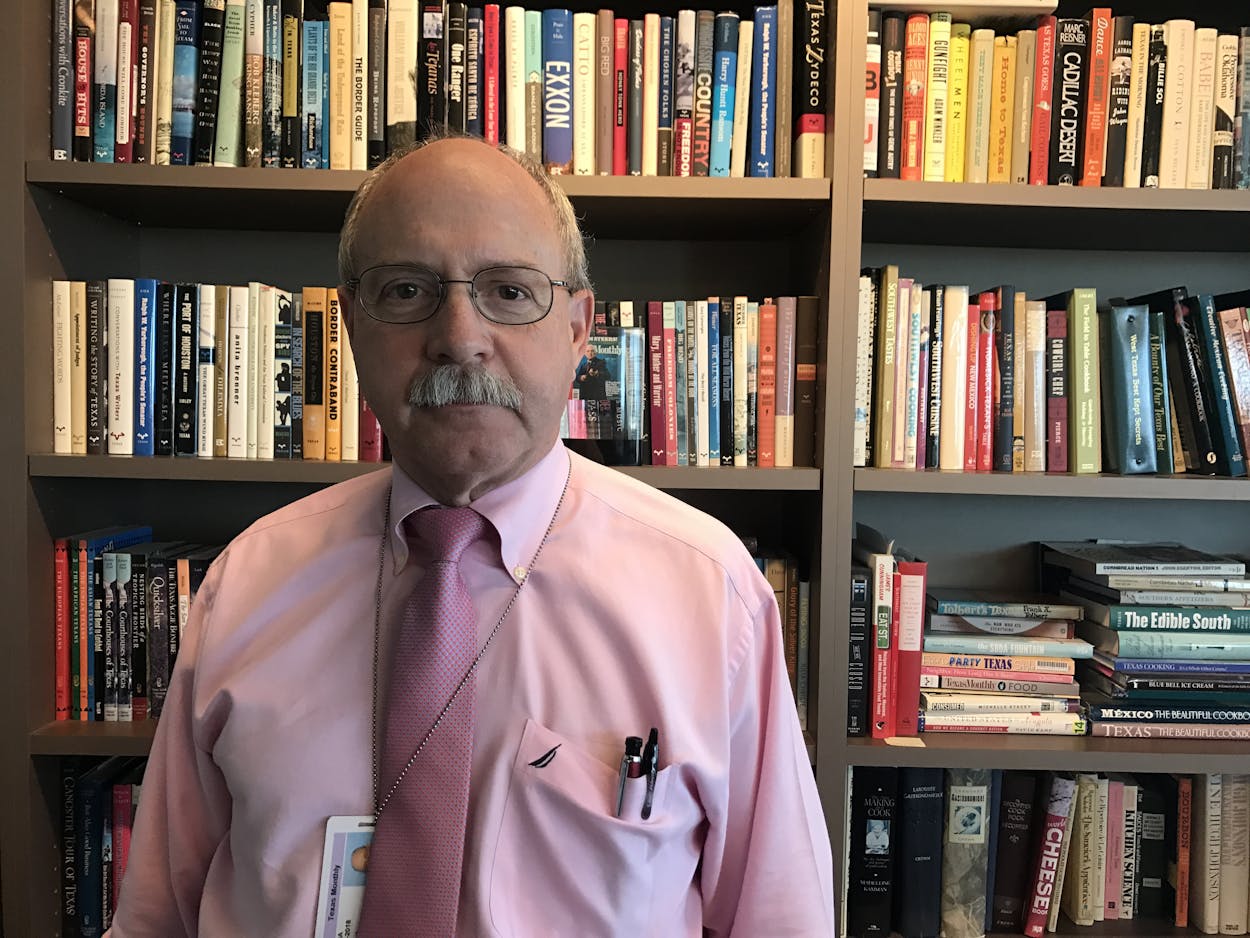If you’re a regular Texas Monthly reader, chances are you’ve seen R.G. Ratcliffe’s byline. It’s everywhere. One of the hardest working reporters at the Capitol, R.G. is a heavy-hitter in Texas political journalism. For the past three legislative sessions, he has contributed to Burkablog and our Ten Best/Ten Worst legislators list, and is leading the charge on its upcoming iteration. In all that time, R.G. has been a contributor; today, I’m delighted to announce that he will be joining our staff full-time as politics editor.
R.G. represents the best kind of political journalist: he’s tough, fair, and accurate. He is sourced with Republicans and Democrats. His extensive experience covering Texas politics gives him perspective, which enables him to do the kind of clear-eyed analysis (like this widely read piece on Dan Patrick) that’s increasingly hard to find. In an era of fake news, when it can be hard to tell what’s reliable and what’s not, we could all stand more reporters like R.G. I’m thrilled that he has agreed to join our team and carry on the work that the great Paul Burka did here for years.
In case you are new to Burkablog, or to Texas Monthly, here’s a brief starter on R.G., written by the man himself. You should know that we are hard at work on this year’s Ten Best/Ten Worst list, so if you have suggestions, R.G. is accepting nominations.
After I started covering politics and government for Texas Monthly, numerous people asked me if I was the new Paul Burka. The answer is no. That would be to diminish the years of work and contributions that Paul made that helped turn Texas Monthly into one of the premier magazines of America. Even if you disagreed with Paul, he made you think.
And that is one thing I hope to do as well—make you think. It’s not my role to tell you what to think—after all, in the United States it is our constitutional right to be wrong or right. I just want to prompt readers to question the knee-jerk jingoisms of the major political parties. Personally, I am non-partisan and haven’t voted in a party primary in more than thirty years. In general elections, I have cast ballots for Republicans, Democrats, Libertarians, and independents. And, more than once, I’ve had to vote for the lesser of two evils.
My hometown is Dallas, where my father was a clothing wholesaler. During the 1964 election, when everyone else was promoting LBJ All the Way, we had a yard sign for Barry Goldwater. Daddy was a die-hard Republican who believed the federal income tax and the Texas public school finance system were nothing less than socialistic income redistribution. He believed personal success came from hard work and arguing anything else was a no-sale for a man whose family had starved after his own father had abandoned them. On the other hand, my mother was the daughter of an oil wildcatter in Louisiana, a man who made and lost a couple of fortunes. The family was friends and supporters of Huey Long. My mother described Long as a crook who could be forgiven because he taxed major oil companies to buy school books for the children in Louisiana public schools. Mother and Daddy often did not vote—except for the time my dad snuck off to cast a ballot for Ronald Reagan—because they cancelled each other out. At our lunch after Daddy’s funeral, Mother sighed and said, “I guess I can start voting again.”
As a journalist, I have worked in Texas for the Beaumont Enterprise, the Fort Worth Star-Telegram, the Austin American-Statesman, and did a 24-year turn with the Houston Chronicle covering the Texas Capitol and national politics. My goal was always to be fair in holding politicians accountable for their actions and to challenge their political positions. The liberal Democratic Attorney General Jim Mattox once complained to me that I had never once written a story on him that he could include in a mailer. In recent years, probably more than one Republican would say the same. However, I have liked almost every politician I’ve ever covered and respect most opposing viewpoints.
Governor Ann Richards once described Texas politics as a contact sport. But it is more than just that. It is where our culture and our business community and our beliefs in who we are come together to harmonize or clash. In this, my job is to inform, entertain, and make you think.






